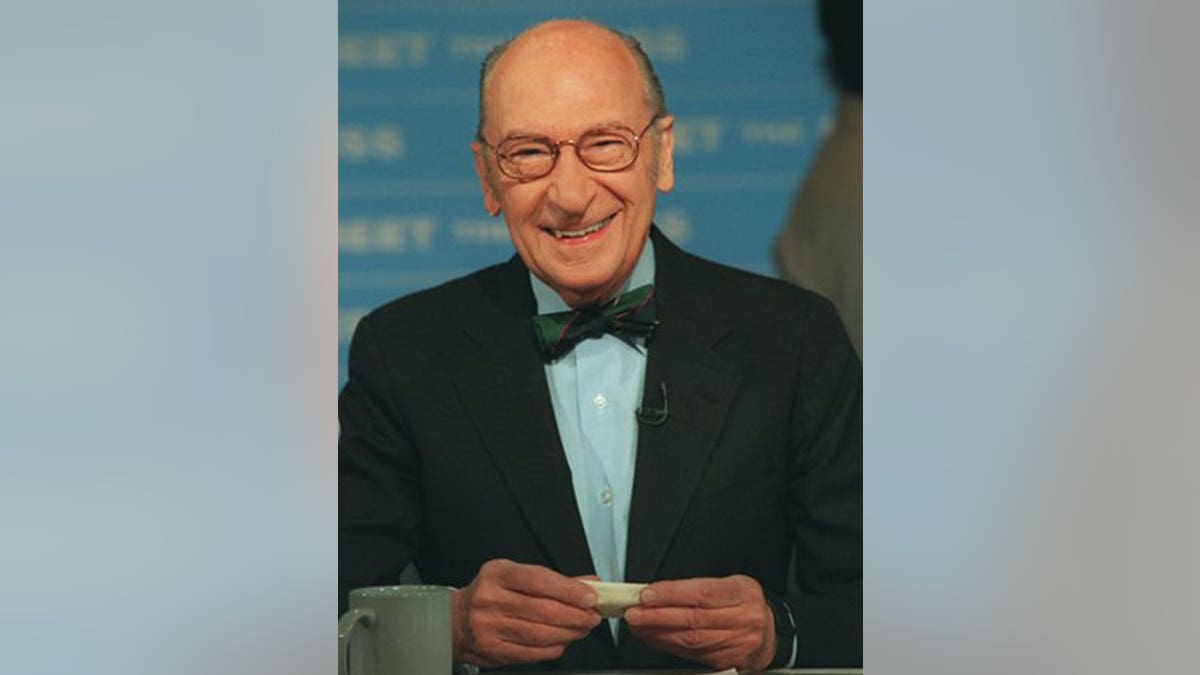
BOCA RATON, Fla. – Irving R. Levine, the professorial NBC newsman who explained the fine points of economics to millions of viewers for nearly a quarter century, has died. He was 86.
Levine died Thursday, announced Kevin M. Ross, president of Lynn University in Boca Raton. Levine taught at the school after leaving NBC. Further details of his death were not immediately available.
Known for his dry, measured delivery and trademark bow ties, Levine was a presence at NBC since 1950 when he began covering the Korean War until his retirement in 1995.
He had become the network's full-time economics correspondent in 1971 and in the last five years of his tenure also did weekly commentaries on CNBC. He also appeared on "Meet the Press" more than 100 times over the years.
After retiring from NBC, Levine joined Lynn University as dean of the college of international communication.
Born in Pawtucket, R.I., Levine began his career in 1940, writing obituaries for The Providence Journal. He also worked as a correspondent for the International News Service and The Times of London.
After joining NBC, he covered assignments from Korea, Moscow and Vietnam to Algeria, Poland and South Africa.
As NBC correspondent in the Soviet Union, he did a half-hour program in 1955 giving a tourist's eye view of Moscow, showing Cold War-era Americans that the Communist capital had "an amusement park not unlike Coney Island (and) another park in which old men played chess and mothers relaxed with their children," The New York Times reported. He explored similar themes in his 1959 book, "Main Street, U.S.S.R."
In 1965, while in Rome, he interviewed the great film director Federico Fellini.
In a 1995 New York Times interview, he recalled that he had hoped to cover the State Department after winding up his foreign correspondent days. But NBC bosses asked him early in 1971 to cover business news instead.
"It was a barren time," Levine said. "Producers just weren't interested in those stories." By the time he retired, though, business news on television was a booming field — though he noted in 1995 that something like the Oklahoma city bombing or the O.J. Simpson trial could still push it aside.
At a welcoming ceremony at the Boca Raton school later that year, Levine said he didn't miss the daily grind but still read three or four newspapers every day, quipping, "Once a news junkie, always a news junkie." He retired from the school in 2004 but continued to be a prominent fixture on campus, a statement from the university said.
He is survived by his wife, Nancy, and their three children, Jeffrey, Daniel and Jennifer.
In a humorous 2001 essay in The New York Times, Levine welcomed the return of the middle initial as epitomized by then-new President George W. Bush.
He recalled that producers trying to shorten a television news story of his "finally suggested I drop the R in my sign-off, Irving R. Levine. I held my ground."
"`No,' I said, 'I'd rather drop the B in NBC."'






